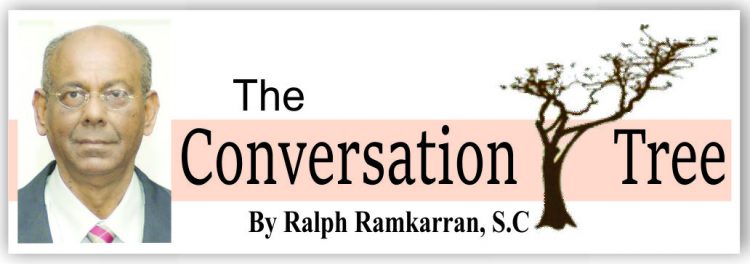
Guyana contended that under Article 79 b of the Court’s Rules, Venezuela cannot challenge the Court’s jurisdiction which had already been pronounced upon in 2020 and is res judicata (already decided). It is also time-barred, argued Guyana, because it ought to have been raised within the time specified in the Court’s order of 19 June 2018.
Venezuela accepted the res judicata effect of the Court’s 2020 decision but made a distinction between jurisdiction and admissibility, arguing that the 2020 decision does not make its preliminary objection inadmissible. Venezuela also argued that its preliminary objection is not time-barred because on 17 June 2020 the Court fixed time-limits for pleadings on the question of the existence of the Court’s jurisdiction, not its exercise.
On the issue of res judicata the Court determined that in its 2020 decision it ruled that it has jurisdiction to entertain Guyana’s application made on 29 March 2018 in so far as it concerns the validity of the Arbitral Award of 3 October 1899. The Court held that it did not rule on the exercise of the Court’s jurisdiction and, in particular, the question whether the United Kingdom is an indispensable third party without whose consent the Court could not exercise its jurisdiction. Therefore, res judicata does not apply. The time-limits also did not apply and Venezuela had the right to raise the preliminary objection.
Venezuela argued that the United Kingdom is an indispensable third party as the Court would necessarily have to evaluate the United Kingdom’s “fraudulent conduct.” Venezuela argues that it was deceived into entering into the Washington Treaty, that the United Kingdom and the arbitrators it appointed submitted falsified and doctored maps, that these acts engage the international responsibility of the United Kingdom, whose participation is required in order to enable Venezuela to protect its rights. It relied on the Monetary Gold (1943) and East Timor (1995) cases. In Monetary Gold the Court ruled that the jurisdiction conferred upon it by France, the United Kingdom, the United States of America and Italy does not give it jurisdiction to adjudicate on a submission by Italy relating to Albania in its absence. In East Timor the Court held that it cannot exercise its jurisdiction in order to decide the claims of Portugal because it would have to rule, as a prerequisite, on the lawfulness of Indonesia’s conduct in the absence of its consent.
Venezuela further argued that the Geneva Agreement does not operate to make Guyana a successor to the rights and obligations relating to the controversy. It submits that Article VIII of the Geneva Agreement provides that upon Independence Guyana becomes a party in addition to, not in substitution for, the United Kingdom. Venezuela argues that the United Kingdom’s status as a party to the Geneva Agreement, nor its conduct subsequent to the Agreement, can be regarded as consent to the Court’s jurisdiction.
Guyana’s position is that the United Kingdom does not have legal interests that could be affected by the Court’s determination of the award. The controversy concerns claims to territory between Guyana and Venezuela and the United Kingdom has no interests which constitute the very subject matter of the controversy. Guyana asserted that it is not the lawfulness of any conduct of the United Kingdom that has to be evaluated in determining the validity of the 1899 Award, but the conduct of the arbitral tribunal. Further, the United Kingdom consented to the Court’s jurisdiction by becoming a party to the Geneva Agreement. It had given its consent for the Court to resolve the controversy, the Geneva Agreement of which accorded to Guyana and Venezuela the sole right to refer the dispute to the Court.
The Court reviewed the Geneva Agreement, noted that it anticipated the Independence of British Guiana and while it describes the controversy as between the United Kingdom and Venezuela, it provides no role for the United Kingdom in the settlement process at the Mixed Commission level. The Court noted that paragraphs 1 and 2 of Article IV of the Geneva Agreement, which makes provision for a choice by Guyana and Venezuela of one of the means of settlement provided by article 33 of the UN Charter, makes no reference to the United Kingdom. Failing agreement, it was Guyana and Venezuela who are to refer the matter to the Secretary General. The Court found that all parties understood that this controversy would be resolved by Guyana and Venezuela and that the United Kingdom understood that allegation of wrongdoing by the United Kingdom would be examined.
The Court reviewed the statements by Venezuela in 1962 at the UN and elsewhere, the tripartite examination of documents in 1965, the relevant provisions of the Geneva Agreement, Venezuela’s exclusive engagement with Guyana in the Mixed Commission and the Good Officer Process. The Court found that even if Court were called upon to pronounce on the conduct of the United Kingdom, this would not preclude the Court from exercising its jurisdiction.
(This column is reproduced with
permission from Ralph Ramkarran’s blog, www.conversationstree.gy)





